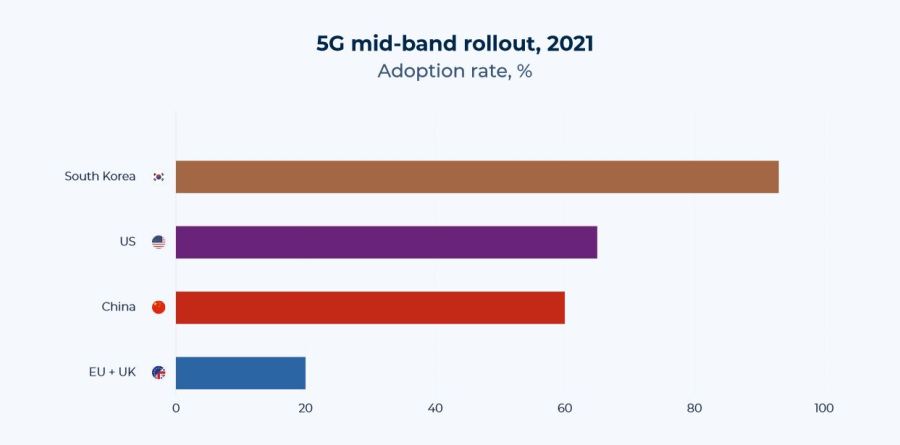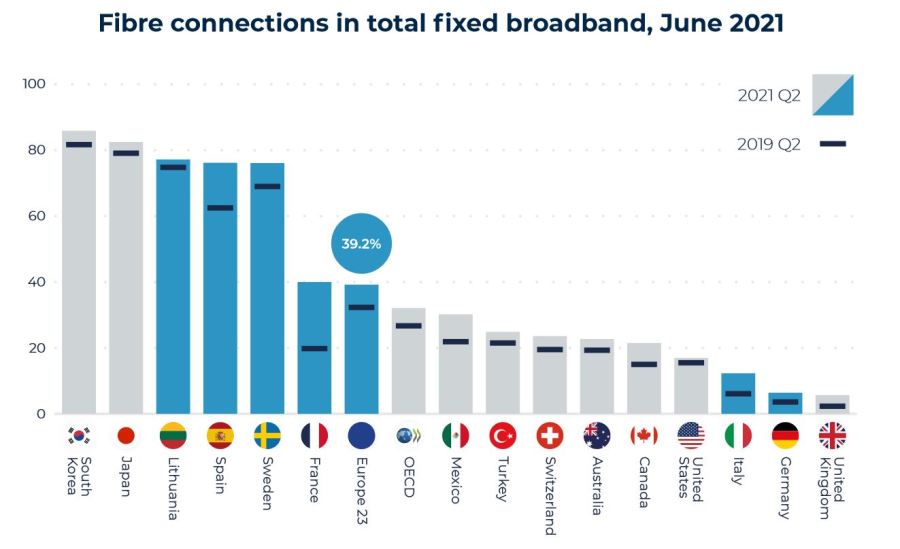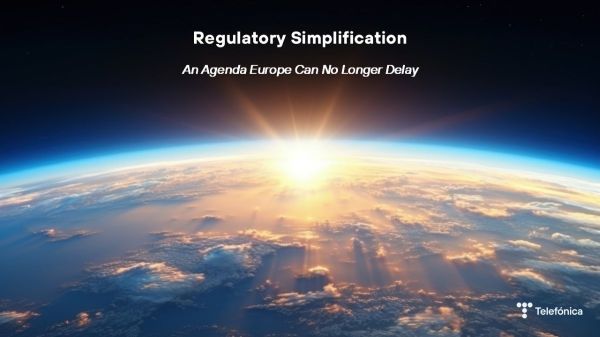“More than ever before, Europe faces fierce global competition”, Martin Brudermüller (CEO of BASF SE) explains in the European Competitiveness and Industries. Benchmarking Report 2022 elaborated by the European Roundtable (ERT). According to Brudermüller, who also chairs the ERT’s Committee for Competitiveness & Innovation: “Our position in the world is in decline – for many years already. Russia’s war in Ukraine adds to the challenge. To remain relevant and prosperous both economically and politically, we need to strengthen our competitiveness. That requires constant effort, action and forward- thinking and builds on innovation and investment – by both the private and public sectors”
This report by ERT shows the urgency of the times we are living and calls for policymakers to be more attentive to the EU’s competitiveness and to strengthen the position of European companies in the world. It also offers a deep analysis of European companies and industries performance compared to global peers in the United States, China, South Korea, Japan, or India. Therefore, it focuses on five key identified strategic areas for competitiveness, i.e.: single market and competitiveness; innovation; critical infrastructure and technology; dual transition (digital and green); and global presence and influence.
The report shows where policymakers and businesses urgently need to focus to revitalize the European Union’s broad global competitiveness and foster economic growth and European living standards. For this purpose, it establishes 64 Key Performance Indicators (KPIs), each of them with observations, recommendations and revealing graphs.
Connectivity infrastructure as a lever for global competitiveness
In particular, the report highlights concerning trends marked by the steady shift of the global economic gravity centre eastward. In this context, with China is a key driver, leadership is moving away from European-US hegemony while Europe is losing competitiveness and ground in key investment areas of infrastructure and future technologies.
Here it is highlighted the KPI on connectivity as the backbone of the European economic recovery and competitiveness of companies globally. Indeed, the ambitious European Commission goals for the Digital Decade set out in the EU Digital Compass 2030 includes the connectivity target stating that “all EU households should have gigabit connectivity and 5G should cover all populated areas”. Therefore, critical infrastructures and technology acquire a strategic dimension. Connectivity infrastructure, 5G and fibre, and the technologies it enables – including Artificial Intelligence, B2B applications and IoT – are key to transform industries, boost corporate innovation, combat climate change and the decline in productivity growth.
However, ERT report states that progress towards building key digital infrastructure is still too low compared to peers. This could put at stake the digital and green transition and jeopardize the building of European competitive industrial ecosystems.


ERT recommendations to boost EU competitiveness
To this regard, ERT recommends Europe to establish the right incentives for sustainable digital infrastructure investments. It encompasses, among others, to create favourable conditions for 5G investments; prioritise the development of a harmonised and investment friendly framework for 5G spectrum assignment and operation.
The document also outlines the need to provide regulatory incentives for private investment, reduce the cost of spectrum, support voluntary network sharing for higher efficiencies and promote competition without artificial interventions.
To promote confidence, ERT also recommends harmonising limits of science-based electromagnetic field (EMF) across Europe and disinformation about 5G countered through better communication. And regarding security, recommendations extend to implementing the technical and strategic measures laid out in the connectivity and cybersecurity toolboxes using a fact and risk-based approach.
A shared effort to strengthen the global position of EU companies
Telefónica considers that this report marks a milestone in the field of identifying and gathering key KPIs to analyse and monitor Europe’s competitiveness. We especially celebrate the consideration of connectivity infrastructure as a key indicator. Besides, the report provides useful guidelines to policymakers to take action to strengthen Europe’s industrial competitiveness and strategic autonomy.
In Telefónica, we believe that Europe has the opportunity to establish and modernize the regulatory framework to foster a more effective set of investment and financing mechanisms. Additionally, Europe can promote the involvement of a wider range of stakeholders in the network rollout and operational costs.
The EC Declaration of digital rights and principles recognised in Chapter II on solidarity the need to “develop appropriate frameworks for all market players benefiting from the digital transformation to assume their social responsibilities and to contribute fairly and proportionately to the costs of goods, services and public infrastructure”. The EU Internet Ecosystem report published by the European Telecommunications Network Operators’ Association (ETNO) evidences bargaining power asymmetries to be addressed in the appropriate framework requested by the EC Declaration to restore the balance between tech giants and telecom operators. This vision also fits with the announced Connectivity and Infrastructure Act which will be focussed on Very High-Capacity Networks and a revision of the broadband state aid guidelines.
The time has come to provide decisive support for high-capacity infrastructures that will undoubtedly contribute to improving the competitiveness of European companies on a global scale, economic growth and prosperity in the region.







